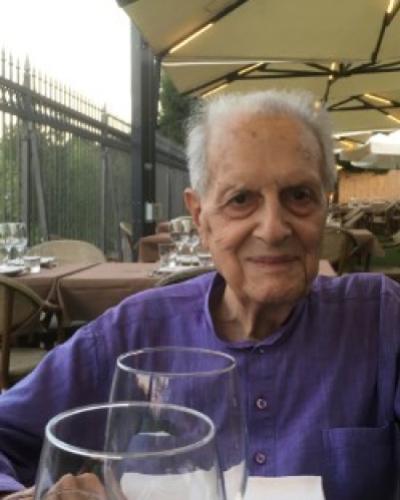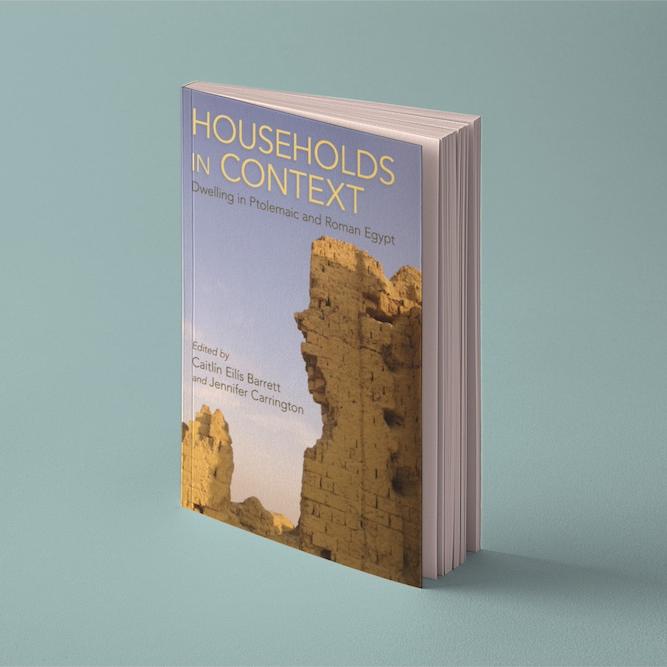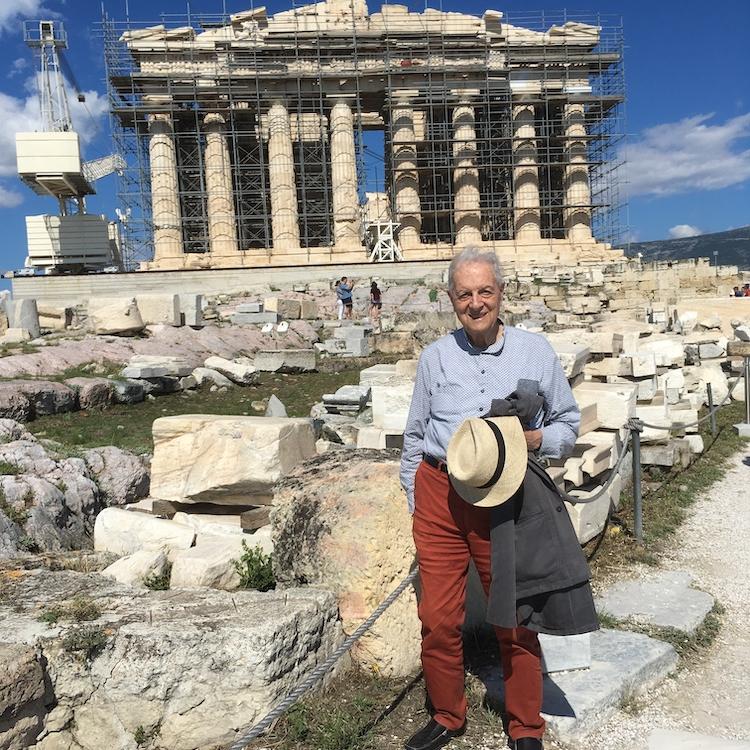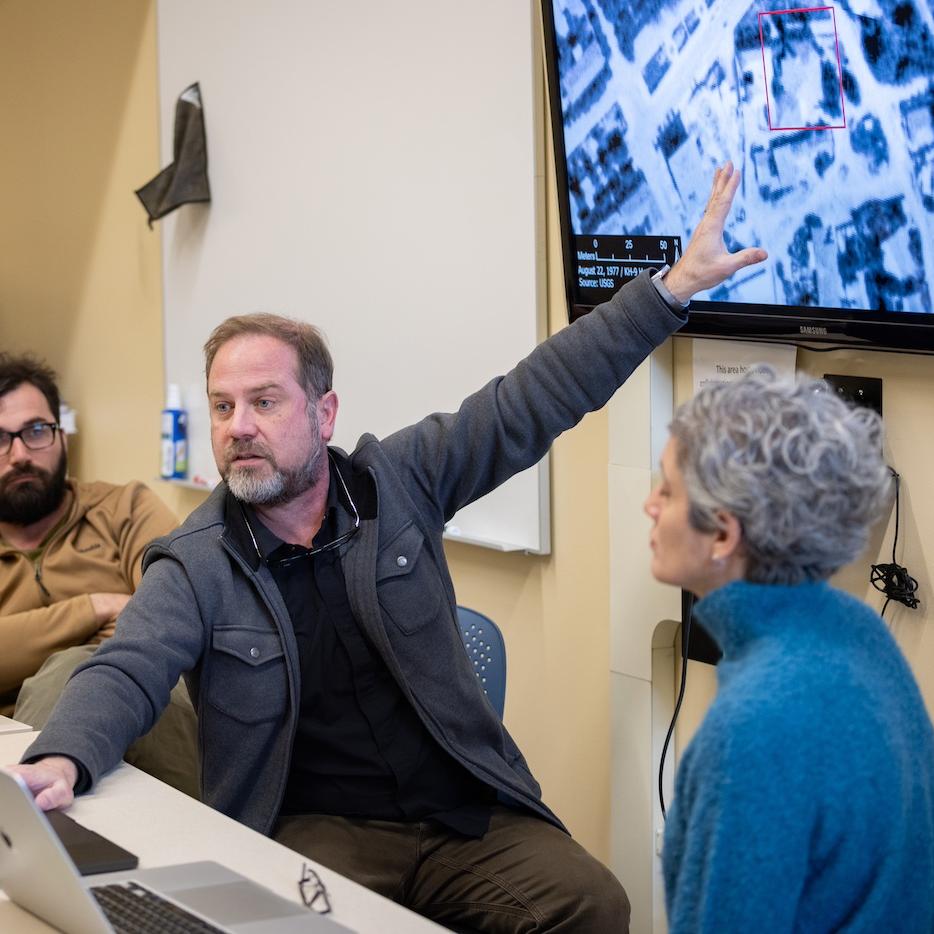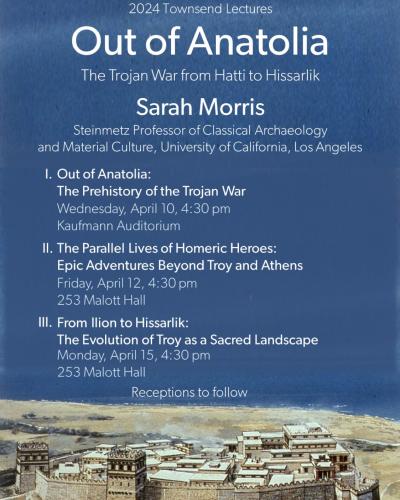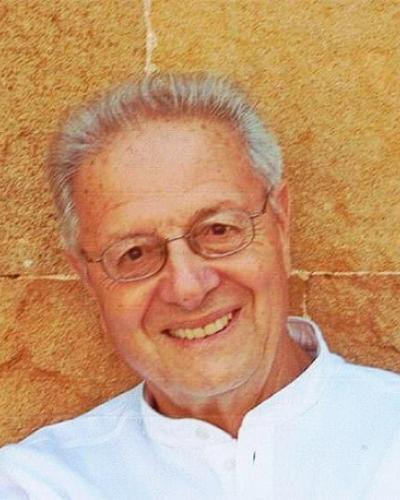Long time Cornell colleague Frederick Ahl writes:
Piero Pucci, born in Modena, Italy on November 27, 1927, came to Cornell after achieving his doctorate at the University of Pisa and holding posts at the Universities of Florence (1951-1952), Ottawa (1952-1961), and Kansas (1961-1962). He arrived here at Cornell three years before Cornell celebrated its first century. By the time of his retirement in 2015 Piero had served Cornell for over a third of its entire institutional existence. Piero took as a motto the book title of the great artist, writer, and social activist Carlo Levi: "Il futuro ha un cuore antico: the future has an ancient heart"—a perspective Piero first acquired in his early days as a student at the famous Liceo Classico e Linguistico Muratori San Carlo. For Piero, the classical world and its literature was not different, pre-modern, but essential humanity. Perhaps that was why he felt a curious unease with Comparative Literature as a discipline, despite his deep intellectual and personal contacts with those at the leading edges of Comparative Studies. For Piero was never formally associated with the Department of Comparative Literature at Cornell nor with Cornell’s famous and influential journal Diacritics, though Piero was much admired by Cornell’s outstanding comparatist, Jonathan Culler (who for many years taught a session in Piero’s ‘Initiation to Greek Culture’ course). Perhaps the notion that the ancient is somehow separable from the contemporary as “pre-modern” troubled him more than people realized. He was wary of over-precise categories and did not want to be defined by one.
This may explain why, at Cornell, Piero was not always identified as the wide-ranging man of letters his colleagues in France and Italy recognized, but instead labelled more narrowly for lack of a convenient category in the then US context as a ‘Classicist’ (whatever that meant to a particular individual). Perhaps, like the Roman poet Ennius, Piero had not just one but three hearts, the product of his three “modern” language and cultures. In Piero’s case, one heart was Italian, one French, and one American. I was most familiar with the American because he and I were colleagues in adjacent offices for several decades and even became US citizens on the same day at the same building on Buffalo Street. Piero, however, continued always to feel the pulse of his non-American hearts—not only academically, but also in broader cultural, social, and personal senses. This gave him what his Cornell colleague Hayden Pelliccia describes as Piero’s uncanny ability to present visiting scholars to the department as multi-dimensional beings, whose approaches to issues could open up possibilities that not even they themselves had realized. And that’s also the skill that made him an amazing teacher and a fine administrator in his stints as department chair and director of graduate studies.
Piero’s love of art, music, poetry, wine, and cuisine enabled him to find shared enthusiasms even among those with whom he disagreed. He was blessed with the resources to maintain residences in Rome and Paris as well as in Ithaca and New York City to accommodate, as it were, his multiple hearts, his groups of friends, his colleagues and students. He was a familiar academic and cultural presence at the most distinguished institutions of learning in Italy and France, especially at the École des Hautes Études and the Sorbonne in Paris. For Piero was surely the most famous, most productive, most widely respected of all Classics professors at Cornell, nationally and internationally. His native fluency in Italian and his masterful French opened to him, and, through him, to us as his colleagues (or students), audiences and cultural contacts in European circles that would otherwise have been far less accessible. Jacques Derrida and others regarded Piero as part of their own social, cultural, and intellectual milieu, not as a tourist from an alien planet. Nor was the span of his connections limited to the academy. Among his friends was Luciano Pavarotti, whom Piero hosted during a visit to Ithaca. Indeed, one of my special experiences was sitting several rows behind Piero while Pavarotti was giving his recital. Piero was constantly up on his feet, applauding, and pelting the great tenor with flowers as if he were at La Scala, not in the more subdued atmosphere of Bailey Hall. Students were amazed by the revelation that classical music could inspire not just politely managed approval, but the demonstrative fervor enthusiasts express at a popular music festival like Glastonbury (had they read Euripides’ Bacchae with Piero they would have known this).
I hope that Piero’s work and example will have a chance to survive in our changed academic world where most will be grateful if there is a future with any kind of heart.

